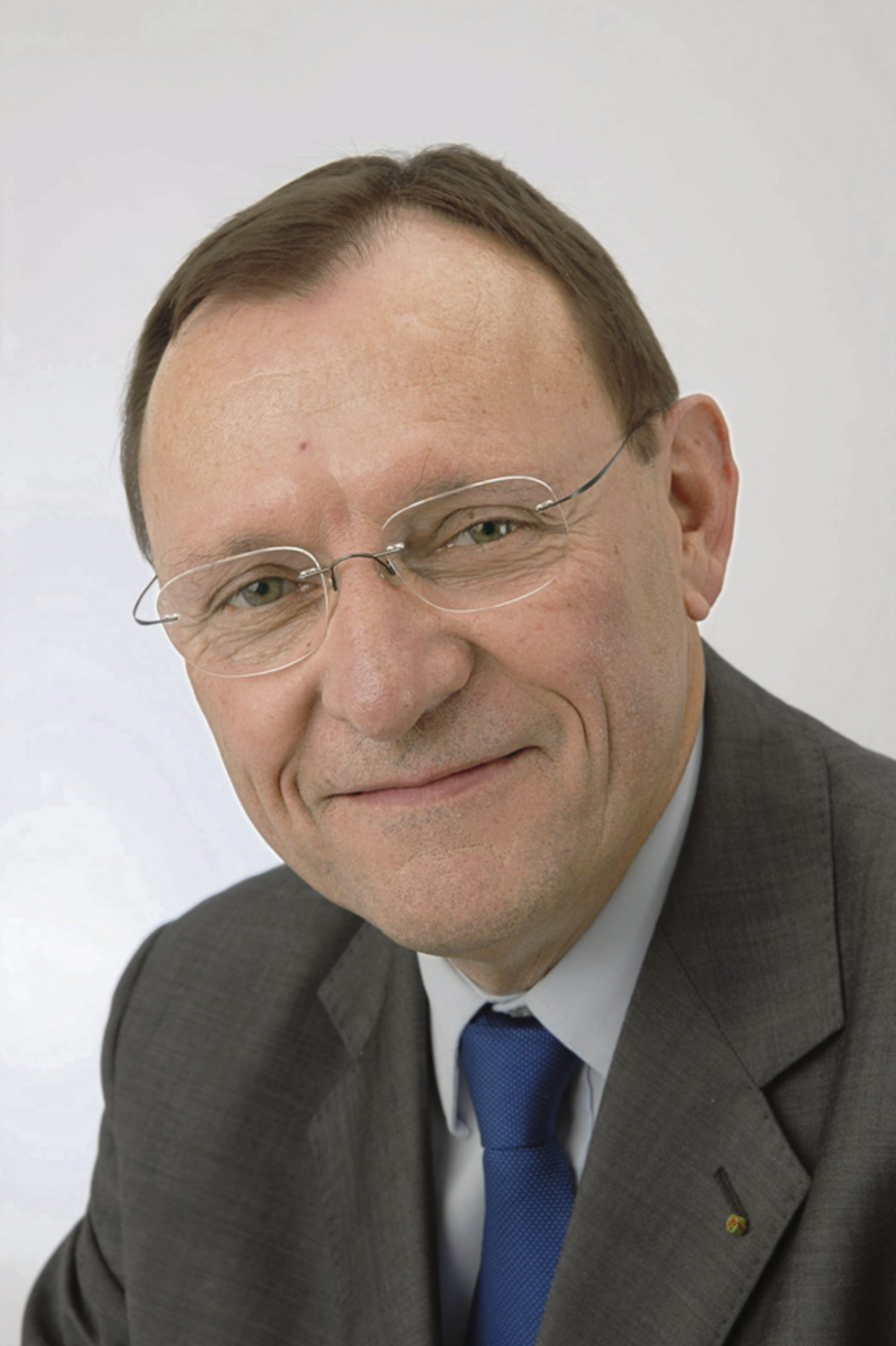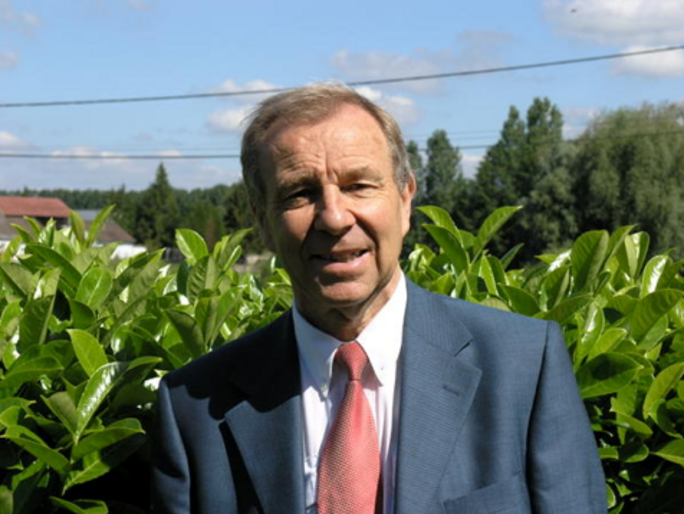In a statement issued late Thursday, the Haute autorité pour la transparence de la vie publique (HAT), the newly-created official French watchdog whose mission is to monitor and investigate the financial probity of parliamentarians, members of government and heads of public organizations, announced it has recently passed on to the Paris public prosecutor’s office detailed reports on the cases of three parliamentarians about who it has “a serious doubt regarding the exhaustiveness, exactitude and sincerity” of their mandatory declarations of their personal wealth “notably due to the omission of assets held abroad”.
Senator Bruno Sido and Members of Parliament (MPs) Lucien Degauchy and Bernard Brochand are suspected of having hidden their Swiss bank accounts over many years, and even for decades concerning the latter two.
The move to kickstart a judicial investigation into the alleged violation of public office probity laws is the first of its kind by the HAT since it was created last year under a law passed in October 2013 regulating “transparency in public office”. The drafting of the law was prompted by the scandal surrounding socialist budget minister Jérôme Cahuzac, who was forced to resign after Mediapart’s revelations that he held a hidden bank account in Switzerland.
It was in the months immediately after the Cahuzac scandal that Senator Bruno Sido, 63, who is also president of the general council of the north-eastern Haute-Marne département (county), and MP Lucien Degauchy, 77, whose constituency is in the Oise département north of Paris, both declared their secret Swiss bank accounts to the French tax authorities, with whom they sought a settlement.
The hiding of their assets abroad is now the subject of an investigation opened on November 7th and led by France’s judicial anti-corruption office based in the Paris suburb of Nanterre. The HAT’s case against Brochand was reportedly received by the Paris public prosecutor’s office on Thursday, November 13th, and is expected to also result in a preliminary investigation.

Enlargement : Illustration 1

Questioned by Mediapart, Sido claimed his hidden account with the Lausanne-based Banque Cantonale Vaudoise was the inheritance of an account opened by his father in the mid-1990s and which contained 150,000 euros. Degauchy also claims his secret account in Switzerland was inherited from his parents, who he says opened it some 30 years ago and which, he told Mediapart, contained “138,000 or 148,000 euros”.
Meanwhile, Degauchy is also under investigation by the HAT over the suspected under-evaluation in his declarations concerning the value of property he owns. The HAT has refused to comment on this aspect of its probe, but Mediapart understands the alleged under-evaluation is suspected to amount to as much as 50 per cent.
MP Bernard Brochand, 76, who represents a constituency in the Riviera town of Cannes in south-east France, where he was also mayor until March this year, is suspected by the Paris public prosecutor’s office of holding possibly in excess of 1 million euros with Swiss bank UBS. In a statement issued on Thursday he denied any wrongdoing.
“The money, earned legally in the course of my work, deposited into this account during the 1970s was subjected to French taxes," it read. "My situation is therefore clear, legal and honest. That the [HAT] does its job is normal. But to the contrary, that I be thrown to the wolves and made a victim of an allusion to fraudsters is shameful. I don’t accept it. I therefore ask that truthful information be made known.”
Brochand is also implicated in an ongoing judicial investigation into a suspected political funding scam while he was mayor of Cannes. In April this year, the magistrate leading the investigation, Jean-Pierre Murciano, applied for the lifting of Brochand’s parliamentary immunity that protects him from being arrested for questioning, but which was refused by the National Assembly.
While Sido and Degauchy have now declared their hidden assets in Switzerland, it remains that all three parliamentarians hid them for many years - and in the cases of Degauchy and Brochand for what is suspected to be a period of several decades.
French parliamentarians have been called on to declare their personal wealth on a parliamentary register since 1988, but it was not until 2011 that they were legally required to declare their assets in full. More importantly, it is only since last year’s law regulating “transparency in public office” that failure to completely disclose their personal wealth exposes MPs and Senators to possible criminal charges that, if proven in court, carry a maximum three years’ jail term, a 45,000-euro fine and the stripping of their right to hold public office.
Created under the new law, the HAT watchdog, presided by senior French magistrate Jean-Louis Nadal, is specifically responsible for monitoring - and, where it suspects malpractice, investigating - the personal wealth declarations of Senators and MPs, as also of other holders of public office, including France’s Members of the European Parliament, local and regional council representatives, and members of government.
It works in cooperation with the French tax authorities, but its brief concerns identifying the violation of probity laws. The investigation and prosecution of tax evasion crimes is the remit of the French finance ministry.
In September, the French junior minister in charge of overseas trade, Thomas Thévenoud, was forced to resign after less than two weeks in his post when it was revealed that he had not paid tax on his earnings over a period of several years. At the time, the conservative UMP party to which Brochand, Degauchy and Sido belong demanded that Thévenoud, who subsequently claimed to have paid back his unpaid taxes after joining the government, should resign his parliamentary seat.
Ironically, Brochand last year adopted an outspoken stance against Cahuzac – and for the transparency of politicians’ financial affairs - after the budget minister’s tax evasion was revealed, while Thévenoud was vice-president of the National Assembly’s fact-finding mission on tax evasion and sat on the parliamentary commission of enquiry into the government’s handling of the Cahuzac affair.
The HAT is nearing completion of its monitoring of the personal wealth of all of France’s 577 MPs and 348 Senators, which will be open to public consultation in each of the country’s 101 regional prefectures (administrative centres).
Senator Bruno Sido said he was fined “26,000 or 28,000 euros” by the French tax authorities after he declared with the Banque Cantonale Vaudoise to the them in July 2013, and that the funds it contained were transferred back to France by the end of the year. “It’s an inheritance, I never myself added to this sleeping account,” he told Mediapart. “It doesn’t involve public money and it in no way concerns my local responsibilities.”
When he filed the declaration concerning his personal wealth to the HAT at the beginning of 2014, Sido, who became a Senator in 2011, detailed the closing of the Swiss bank account and the sums involved. However, that was not the case in his previous declarations (to the predecessor of the HAT), when he hid the existence of the account.

Lucien Degauchy, 77, a former horticulturist who is into his fifth successive mandate as MP for a constituency in the Oise department, decided to close his Swiss account - originally opened by his parents - last summer, when he declared it to the French tax authorities. Until then, it had remained hidden for 30 years. According to information received by Mediapart, the account contained 200,000 euros. Degauchy denies this, and told Mediapart it contained “138,000 euros or 148,000 euros”, considerably more than the “100,000 euros” he recently cited to French daily Le Monde.
Asked why he did not declare the account to the HAT in January this year, when the personal wealth declarations are filed, he said “it was that the account was closed, that I was waiting for the funds”. According to information received by Mediapart, the money was transferred back to France this summer. The fact remains that Degauchy, first elected as an MP in 1993, has kept the account secret for several decades. “I didn’t feel I was the owner of the account, into which I have never deposited one centime,” he told Mediapart. “It was my parents who added to it, promising me that the money would go to their grandchildren. When my father dies, some 15 years ago, it became a dormant account. For me it was a burden, a sword of Damocles. I’m not for anything in all this, good god.”
In March 2013, at the height of the scandal surrounding budget minister Jérôme Cahuzac’s secret Swiss bank account, Degauchy was one of several MPs who signed a proposed bill of law for the “putting into place of a fiscal amnesty mechanism” by which French residents who held tax-evading accounts abroad would be given notably lenient penalties if they came forward to repatriate their hidden assets. “At a time when the French government seeks new tax income, it is urgent to devise strong measures in order to repatriate the indispensable capital [needed] for the re-launching of our economy,” the text proposing the bill read. “According to certain estimates, the amount of just the French assets placed in Switzerland could total 45 billion euros,” the text continued, proposing a blanket penalty of just 5% of the value of the assets that are returned to France.
Questioned about his support for the proposed bill, Degauchy said he could not remember his involvement. “I sign 20 propositions of bills of law per day which my political group ask me to sign,” he said.
Meanwhile, President François Hollande recently tasked the head of the HAT, Jean-Louis Nadal, to conduct a review of French legislation relative to the probity of those holding public office, and which is to include Nadal’s observations concerning the means at the HAT’s disposal to enforce and ensure the rules of transparency. Speaking at a general press conference in September, Hollande said that he would take note of any difficulties that Nadal encounters in seeking out information. “Because I want to go right to the end,” said Hollande. “I don’t want it to be possible to think, at the end of my five-year office, that there is one parliamentarian, one minister, one public servant who is not in order.”
-------------------------
- This is an abridged version of the original article in French which can be found here.
English version by Graham Tearse


